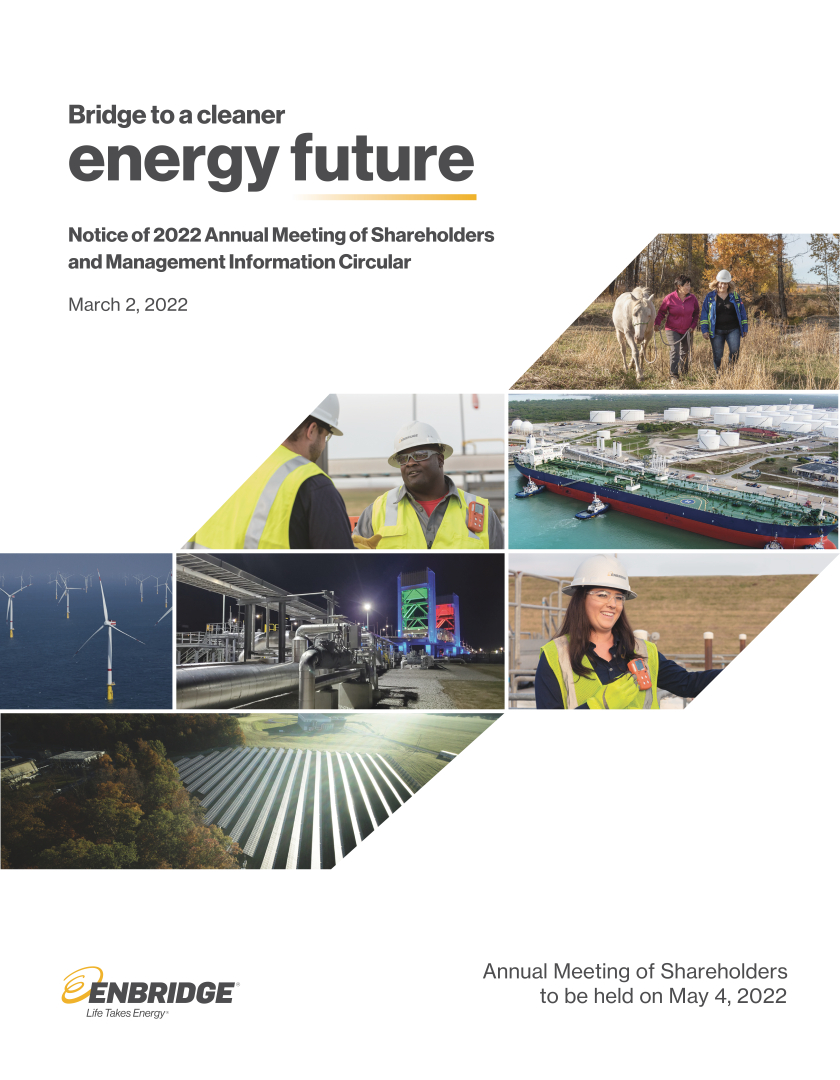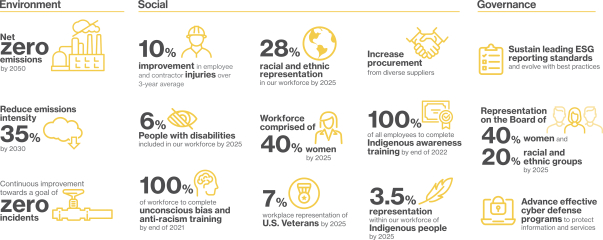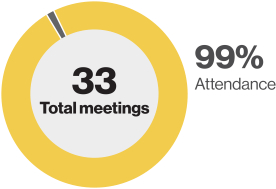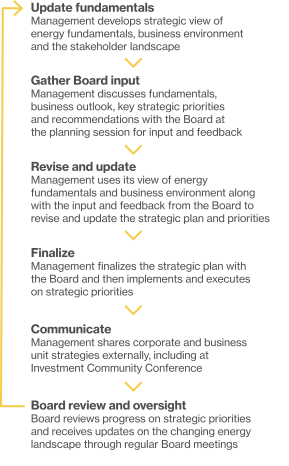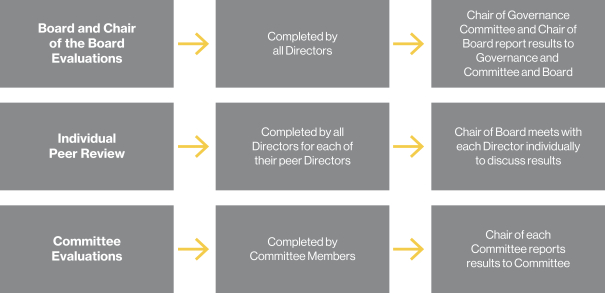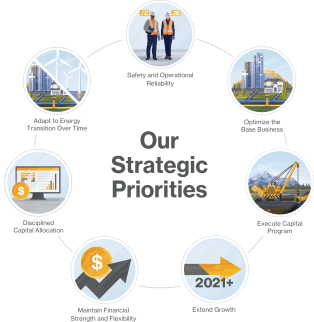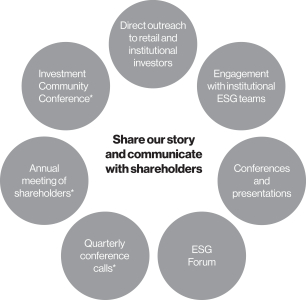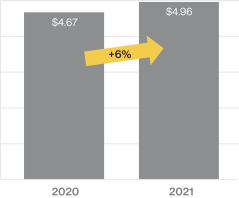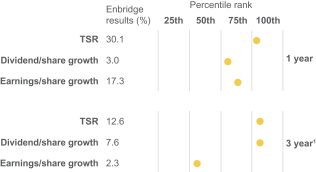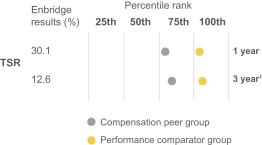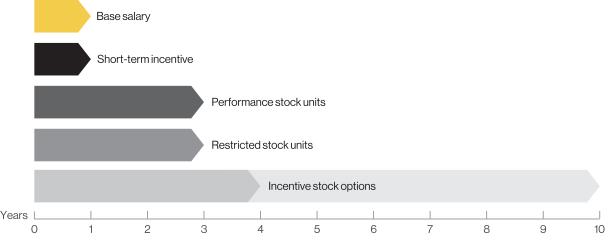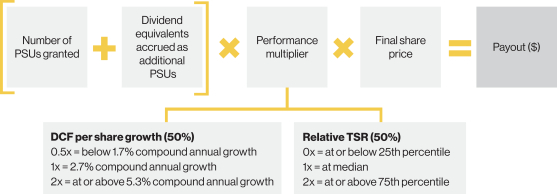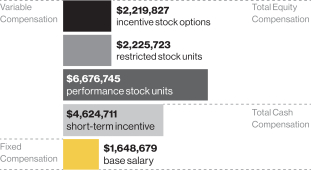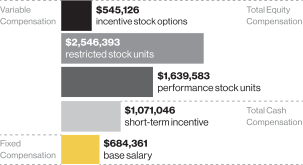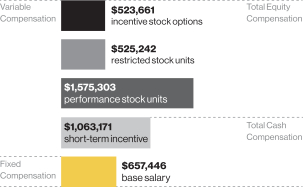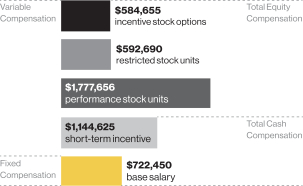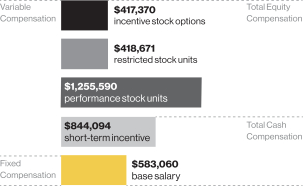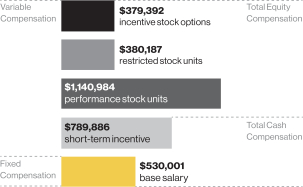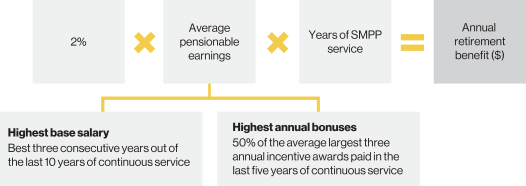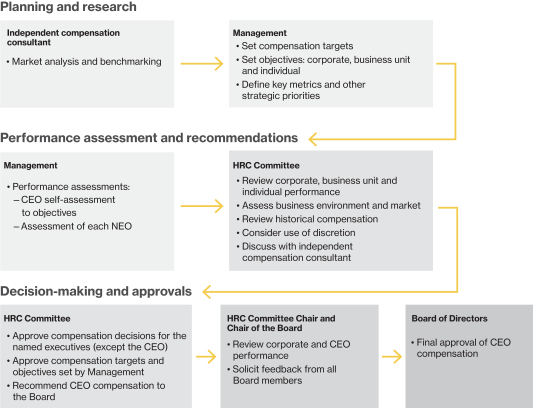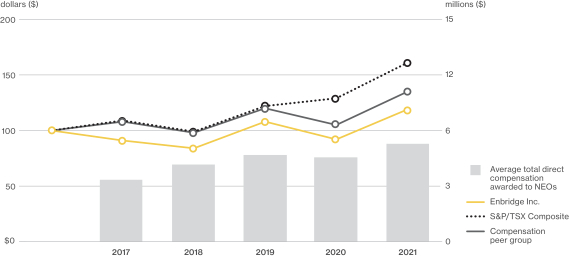THE BOARD OF DIRECTORS RECOMMENDS VOTING AGAINST THE PROPOSAL FOR THE FOLLOWING REASONS:
Enbridge’s net zero and interim 2030 targets are already based on science and aligned with the objectives of the Paris Agreement. In fact, Enbridge utilized SBTi’s target setting tool and methodology to develop our interim target. We also have implemented a focused plan to achieve our net zero and interim targets, which are fully embedded in our operations and investment framework.
The proposal calls for adopting a net zero target-setting framework that has not been developed for the midstream sector and is therefore premature. It also ignores the significant commitments and actions we have taken, and continue to take, that are aligned to net zero. We have utilized the best available tools to track and report progress against our leading greenhouse gas emission targets, and linked performance against these targets to employee and executive compensation. We have completed $3 billion of sustainability-linked financings that tie borrowing costs to ESG targets and performance against our emissions goals, and our business units have developed long-term emissions reduction plans. Our progress has been recognized by independent expert parties, including CDP, formerly known as the Carbon Disclosure Project (which gave us an “A-” grade for our climate change response), and Sustainalytics (which ranked us in the top 5% of its industry group). In addition, our long-standing engagement with CA100+ informed the development of our first TCFD report in 2019 and our net zero target and continues to support our energy transition progress.
The proposal also espouses an accelerated approach to decarbonization, which we believe would destroy shareholder value and adversely impact the affordability and reliability of the energy that millions of people depend on every day. We understand the risks, opportunities and needs associated with a prudent and thoughtful transition to a lower-carbon energy future. We have made, and continue to make, significant investments in the modernization of our assets, renewable infrastructure, and new energy technologies. We have embedded our energy transition goals into our business and capital allocation framework to assure resiliency through the transition and in a lower-carbon energy future.
The Board of Directors believes that the proposal is contrary to the best interests of our shareholders and other stakeholders, in the following two areas:
Science-Based Net Zero Target
First, the proposal ignores the fact that our 2050 net zero and interim 2030 targets are based on science and aligned with the objectives of the Paris Agreement. In fact, we utilized SBTi’s target setting tool and methodology to develop our interim target. In 2020, we became among the first within the energy midstream sector to establish emissions reduction targets and we are committed to leading our sector. Since 2018, we have reduced our emissions intensity and absolute emissions by approximately 21% and 14%, respectively, and we are on track to achieve our interim and net zero targets.
At the time we set them, we identified and committed to four pathways to achieve our Scope 1 and 2 emissions reduction targets: (i) investing in the modernization of our infrastructure and latest technology; (ii) procuring renewable and lower intensity sources of electricity to power our pumps and compressors; (iii) building solar power generation at our conventional energy facilities to provide clean energy for our operations; and, if required, (iv) investing in nature-based solutions.
The shareholder proponent requests that we strengthen our already industry-leading commitment to lowering emissions by committing to “science-based net zero targets.” However, beyond the SBTi tool we applied in setting our targets, midstream sector specific guidance for establishing net zero commitments does not exist. It would be imprudent for Enbridge to commit to adopting future guidelines until we know what they are, and we have had an opportunity to assess them in the context of our current net zero target.
We are carefully monitoring the development of science-based guidance for the midstream sector. We have actively engaged with SBTi and CA100+ and are committed to working with them, IIGCC (Institutional Investors Group on Climate Change) and other organizations in developing such guidance. Once this guidance is developed, we will fully evaluate it and assess whether our own targets should be amended.
With respect to the shareholder proponent’s reference to Scope 3 emissions, we are already leading our sector in tracking, reporting, and reducing Scope 3 emissions. Despite very limited guidance defining Scope 3 parameters for the midstream sector, we have been tracking and reporting on Scope 3 emissions since 2009. We currently report utility customer natural gas use, employee air travel and electricity grid loss. In 2021, we added new Scope 3 metrics that track the emissions intensity of the energy we deliver, and the emissions avoided through our investment in renewables, low-carbon fuels and our conservation programs.
| | |
| 112 | | Enbridge Inc. 2022 Management Information Circular |
